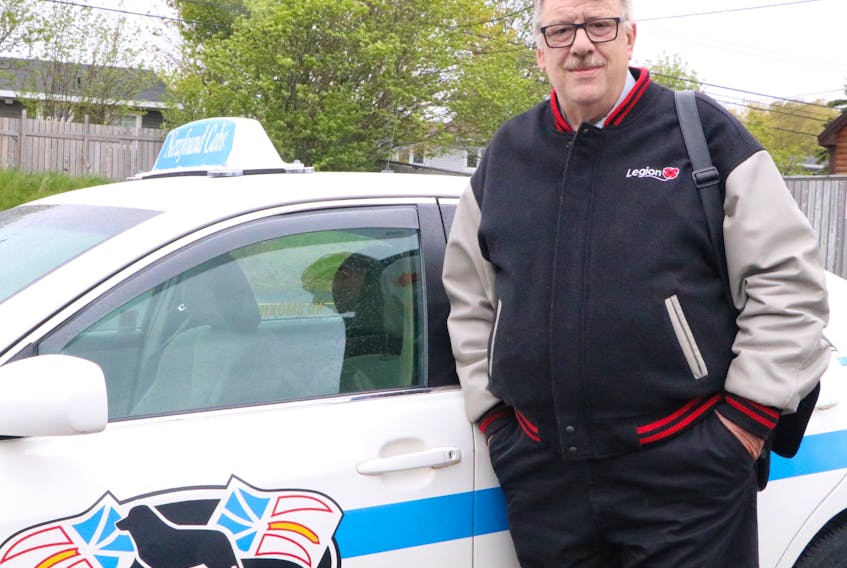Many taxi operators in the province with good driving records believe their industry will die if major changes do not occur to stem rising insurance premiums they have been dealt over the past few years.
The Public Utilities Board (PUB), in its recently submitted report to the provincial government following its review of automobile insurance in the province, agrees the taxi industry is in crisis.
The PUB acknowledged measures already taken by the industry and government to reduce loss claims, and made suggestions on what other measures the government could pursue.
“At the end of this review it is clear that the taxi industry is in crisis largely as a result of the recent significant increases in insurance premiums,” the report reads.
“These premium increases are the result of the extremely high loss ratios that have been experienced for this class of business.
“Government and the taxi operators have already taken the first steps to strengthen the taxi industry and it is expected that these measures will lead to lower loss costs in the long term. Unfortunately, it is unlikely that these actions will result in immediate measurable reductions in the taxis loss costs and premiums. In the circumstances, it may be advisable to bring together representatives from the taxi and insurance industries, as well as the various levels of government, to build on the work that has already been done and to identify additional measures that can be implemented in the near term to control loss costs and to provide relief to the taxi operators.”
The report states that Facility Association taxi rate increases experienced in recent years have been the result of the poor taxi claims experience in the province.
“In 2012 the taxi industry reported incurred losses of $6 million which exceeded the earned premiums collected for the period by over $4.2 million, resulting in a loss ratio of 340 per cent,” the report notes. “Despite the significant rate increases implemented by Facility Association in the years that followed, the incurred claims costs of the taxi industry continues to be materially higher than the premiums collected.”
The report notes that for 2018, the calculated total premium for a taxi with a clean driving record was $7,058 and for a taxi with multiple accidents and convictions it would have been $15,753.
On July 30, 2018 Facility Association filed an application for an additional taxi rate increase of 10.2 per cent, which, if approved, would increase the average premium to approximately $7,965. That application is still before the PUB.
The report notes that while each taxi operator faces unique circumstances it is clear that the cost of insurance is a serious concern for every taxi operator in the province. Issues were also raised in relation to the significant role of Facility Association in the taxi insurance market and the lack of alternate insurers.
Doug McCarthy, at the time he gave a presentation to the PUB, was a private owner/operator of a taxi with Newfound Cabs. He said the industry is facing a “do or die” situation.
McCarthy had been driving for more than 20 years with a clean driving record, yet he said he paid more for auto insurance than a person convicted three times for impaired driving.
“The primary factor is that we do not have an open market in regards to who we can obtain insurance from,” he said. “We are limited to basically three underwriters who all go through Facility, and Facility sets the rates which are based on their claims payouts, and as far as we can see, the claims that they’re paying out, according to the reports that I’ve gone through, are exorbitant. They are paying out, as I’ve come to determine, a lot more than what they’ve been bringing in, has been the case all along. We’re not disputing that, what we are disputing is the fact that based on current provincial law, I am to be insured on my driving record, not what I drive. Unfortunately, it’s the other way around. I’m insured for what I drive and not how I drive.”
In the report the PUB suggests that “a review of Facility Association’s risk classification scheme and underwriting guidelines for its taxis class of business may be warranted to ensure that the premiums that are charged appropriately reflect the risks.”
In particular, the report suggests:
• Increase the incentive for taxis with a clean driving record and disincentive those with multiple accidents and convictions.
• Introduce a discount for risk-reduction measures taken by taxis.
• Provide for rates that are more reflective of kilometres or time driven.
• Further legislative and regulatory reforms, including mandatory winter tires, and additional requirements in relation to driver licensing, certification and monitoring, as well as additional vehicle requirements.
• Changes to Facility Association’s risk classification system and underwriting guidelines and the expense provision which is reflected in Facility Association’s taxis rates.
• Further measures to address the issues raised related to the reporting of claims and the non-identification of drivers.
• Additional data collection to better identify risks within this market.
• Structural changes such as the creation of risk-sharing pools.
• A review with respect to the taxation of insurance and how taxes apply in the case of the high premiums paid by taxis.
Service NL Minister Sherry Gambin-Walsh has said the report is being reviewed, with a decision to come within the next month.









